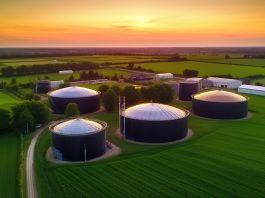Dr Ana Nacvalovaite, investment expert and Research Fellow at Kellogg College, University of Oxford, discusses how sovereign wealth funds are well-positioned to aid the transition to a sustainable planet.
Investing in people might seem to go against pure profit maximisation and business savvy, but it is not just a morally rewarded practice; it is also, in the modern world, a smart financial strategy.
In my work at the Oxford Centre for Mutual & Co-owned Business at Kellogg College, University of Oxford, I look at how investment strategies by influential sovereign wealth funds (SWFs) can produce significant human, social, and environmental benefits.
A sovereign wealth fund is an investment pool of foreign currency reserves a government owns.
According to The Sovereign Wealth Fund Institute, a global organisation designed to study sovereign wealth funds and other forms of funds, the amount of money held by the largest sovereign wealth funds has more than doubled since September 2007, from $3.265tr to $9.1tr in 2021.
With such huge capital reserves, SWFs’ financial potential is huge in scale and scope.
The financial potential of sovereign wealth funds for sustainable investment
So, sovereign wealth funds, with their long-term investment horizons and huge capital reserves, are well-positioned to influence the global investment landscape toward ESG priorities. Their focus on intergenerational wealth makes them a perfect fit for social enterprise investment’s steady, generational rewards.
As socially conscious investing becomes more mainstream and is shown to provide a positive return on investment, investment firms will increasingly explore the possibilities of ESG investment (and, across the board, are). This provides a unique opportunity to combine financial return with planet-bettering social impact.
Social enterprise investors can empower local communities, foster job creation, and catalyse a transition towards a more inclusive, resilient, and sustainable economy if they are to focus their investments on businesses such as co-operatives and employee-owned businesses. Therefore, sovereign wealth funds can invest in and nurture ‘people capital’ and traditional capital and help unlock human potential.
Appealing to investors
However, collaboration across sectors is needed to identify potential hurdles and formulate strategies for making this shift appealing to investors.
A widespread understanding of social investment’s risk-return profile is necessary, and an exploration of the legal and regulatory frameworks accommodating such strategies is essential to the widespread uptake of investment in ESG areas. It is also important to tout the benefits of ESG investment and how they can aid humanity and provide a good return on investment.
However, there has been a shift in perspective – and this indicates a global trend. Significant financial players are beginning to realise the importance of alternative social investments, which will encourage sovereign wealth funds to follow suit.
This shows that there is a chance for a sea-change in sovereign wealth fund investment, one which academics and professionals are well-placed to aid.
The shift to a sustainable economy
This change could continue to catalyse the widespread development of innovative business models and solutions that prioritise societal value alongside economic value, reflecting the sector’s significant potential to contribute to a sustainable and equitable world.
But, despite the shift, there is still a long way to go in getting sovereign wealth funds to change their investment into places which will be environmentally and socially beneficial.
My research proposes a shift in investment strategy, urging influential SWFs to direct their vast capital towards co-operatives, mutuals, co-owned businesses, and social enterprises across the globe rather than deposit their money in more traditional and potentially harmful ventures.
The opportunity loss of the investment that will not aid ESG initiatives is also profound. The objective is to harness these vast funds in the pursuit of Sustainable Development Goals such as SDG 8 (decent work and economic growth), SDG 10 (reduced inequalities) and SDG 13 (climate action).
So, unlike traditional businesses, alternative enterprises consider the ‘triple bottom line’ of people, planet, and profit. Investing in these organisations promises not only financial returns but also positive social and environmental impacts, and this is the need for this research.
Today, investing in people makes both social and fiscal sense.









